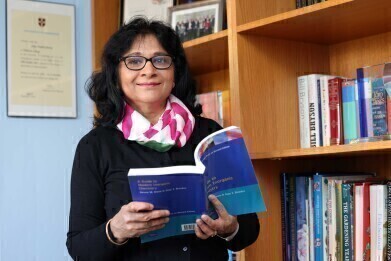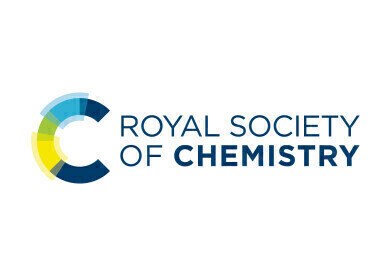-
 Professor Anju Massey-Brooker
Professor Anju Massey-Brooker -

-

News
Moving towards Sustainability for the PLFs Industry
Jul 31 2023
Improving the sustainability of key ingredients in millions of household products in just seven years, are industry-wide targets set by the Royal Society of Chemistry-convened task force working towards a way forward for the global polymers in liquid formulations (PLFs) industry. By sharing information, leaders of some of the largest chemical using, product-making and waste management companies, believe that it will be possible to develop and scale the first biodegradable PLFs and advance circular economy infrastructure for these chemicals by 2030. These two goals underpin an ambition for industry-wide transition for the $125 billion sector to become sustainable by 2040.
Currently, the way that PLFs are made, used and disposed of is putting unnecessary strain on the environment by releasing carbon dioxide into the atmosphere, using up the earth’s finite resources and generating waste. Details of how the chemical industry can make these ingredients more sustainable is revealed in the RSC’s new report, The PLFs Revolution: Our 2040 roadmap for sustainable polymers in liquid formulations.
Professor Anju Massey-Brooker, industry associate at the Royal Society of Chemistry, said: “We are being deliberately ambitious. The scale of this challenge is immense; PLFs can be found in everything from cosmetics and make-up to fertilisers and lubricants for machinery. However, with the right funding and collaboration, we can design biodegradable PLFs and put in place the infrastructure needed to create circular economies for them, so that products retain their usefulness while being more sustainable.
“Government, academics, industry, and the public have shown this can be done through their work to reduce the harms caused by plastic pollution; all these groups now need to come together and join the PLFs revolution.”
Counting industry heavyweights Unilever, BASF, and Walgreens Boots Alliance among its members, the PLFs Task Force was established in 2021 to create a step change in research and innovation that would catalyse a manageable transition to sustainable PLFs. This has culminated in the release of the roadmap which calls on industry, academia and policymakers to help facilitate the transition.
Tony Heslop, Senior Sustainability Manager at BASF, said: “As the global population grows, demand for PLFs will only increase – and our industry needs to take the transition to a sustainable PLFs ecosystem seriously. This means moving away from fossil to biobased feedstocks and creating a circular economy to minimise waste and maximise reuse and recycling.
“This is of course something that no industry body or organisation can tackle in isolation, and as such, the RSC’s task force provides a strategic platform that allows us to work with our industry peers to generate solutions that we can all benefit from, while reducing our collective impact on the planet.”
The UK Government is called upon to create a national chemicals regulator that would set a gold standard in regulation, while academic institutions are asked to use PLFs terminology, collaborate with industry and publish research to stimulate innovation in this field.
Speciality chemicals manufacturer and task force member Croda recently partnered with the Universities of Nottingham and York on an EPSRC-supported project to develop some of the world’s first sustainable PLFs.
Dr Ian Tooley, vice president of chemistry at Croda, commented: “The PLFs task force has been a catalyst for industry innovation and collaboration which has already resulted in tangible benefits for our business. Thanks to our involvement, we have established a new research partnership with York and Nottingham universities in which we’re using AI to help create biodegradable PLFs. If successful, not only will this make our products more sustainable, the project will have provided significant learning opportunities that will enhance the career prospects of the postgraduate and PhD students who have been working with us on this project.”
More information online
Digital Edition
Lab Asia Dec 2025
December 2025
Chromatography Articles- Cutting-edge sample preparation tools help laboratories to stay ahead of the curveMass Spectrometry & Spectroscopy Articles- Unlocking the complexity of metabolomics: Pushi...
View all digital editions
Events
Jan 21 2026 Tokyo, Japan
Jan 28 2026 Tokyo, Japan
Jan 29 2026 New Delhi, India
Feb 07 2026 Boston, MA, USA
Asia Pharma Expo/Asia Lab Expo
Feb 12 2026 Dhaka, Bangladesh


















